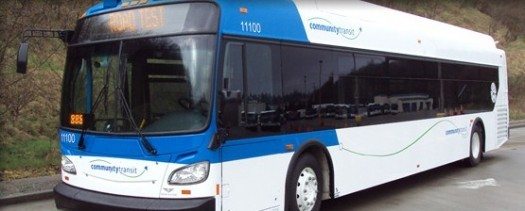Labor & Economy
L.A. Metro Bus Contract Creates Jobs, Lifts Economy

The Los Angeles County Metropolitan Transportation Authority (aka L.A. Metro) needed new, clean buses. If L.A. Metro had simply followed current buying protocol, its single focus would have been on finding a company to deliver the lowest-cost buses. In all likelihood, this would have resulted in jobs going overseas (but for some final assembly jobs on U.S. soil).
Instead, in January, L.A. Metro awarded a $305-million contract for 550 clean-fuel buses to New Flyer Industries, a Canadian company with dedicated manufacturing plants in the U.S. The bus order means that the company will expand its factory operations in St. Cloud, Minn., add a third shift, hire 150 women and men from the local community and create another 50 jobs in Los Angeles. L.A. Metro took a longer-term view of how “big-ticket” transportation purchases — most of them supported by federal funds — can stimulate high-quality jobs and manufacturing in the United States.
L.A. Metro broke the purchasing mold by shaping and utilizing a new model called “the U.S. Employment Plan.” With support from the nonprofit Los Angeles Alliance for a New Economy (LAANE), the U.S. Employment Plan gained federal support for use in this procurement bid. Under the plan, the companies bidding on the publicly funded transportation equipment order had to describe the number and quality of American jobs that were to be created from the contract, as well as how they planned to develop the jobs (for example, recruitment, workforce development and training commitments). L.A. Metro then compared bids based on the cost of the transportation equipment plus the employment benefits and overall economic impacts.
John Desm, president of Communications Workers of America (CWA) Local Union 7304, who represents the workers in St. Cloud, Minn., said, “The contract award represents an important victory in the fight to create quality American clean manufacturing jobs with family-supporting wages.”
Pastor James Alberts, senior pastor of Higher Ground Church of God in Christ, said:
“We have seen people from all over coming to St. Cloud in search of opportunities — long-term residents from the South Side of Chicago, to immigrants from Latin America and refugees from Somalia. The opening of the bus plant created opportunities for disadvantaged workers, enabling members of my congregation to pay their debts, support their families and to become first-time homeowners. But when production at the plant slowed, the company was forced to let go of some of its workers, so to hear that the plant is going to bring 150 new jobs to the community means a great deal to a whole lot of people here in St. Cloud.”
Most bus manufacturing now occurs overseas, a big shift from the early days of transit manufacturing, when the U.S. was the center of innovation. So the St. Cloud operation stands out as one of the last car builders to manufacture its buses in the United States. According to Desm, “The manufacturer has invested heavily in training its women and men in the latest manufacturing processes and highest standards in workmanship. From bus washers to welders to management, staff is continually trained in every aspect of bus production to ensure that everyone has the resources to be successful and move up the ladder.” Taken all together, this bus purchase reflects the commitment of L.A. Metro to build out a clean-energy transit system and demonstrate how innovative procurement approaches backed by tax dollars can create good, American jobs.
The potential impact that other transportation projects can have on U.S. jobs and manufacturing is big. We know that there are hundreds of new transit projects in the pipeline, and more than half will include federal funding. If the federal government approves the U.S. Employment Plan beyond the L.A. pilot, other cities will be able to select transportation equipment providers based on a “jobs created” metric. Targeted areas include Los Angeles, the Baltimore-Washington metro area, Seattle, Philadelphia, New York, Chicago, Denver, Atlanta, Saint Paul, Minneapolis, the Dallas-Fort Worth metro area, Houston, Phoenix, Miami and Detroit.
Based on seed funding from philanthropic supporters like the Surdna Foundation, Living Cities and the Ford Foundation, LAANE is working with a number of partners, from the Brookings Institution to BlueGreen Alliance, and with economists at the University of Massachusetts and the University of Southern California, to advance the U.S. Employment Plan and help others cities adopt it. Tools like the U.S. Employment Plan are what we need when so many Americans are hungry for well-paying jobs. Turning federally funded transit projects into a vehicle for job creation that also boosts America’s manufacturing sector is an overdue step.
(Linda Nguyen-Perez, a research/policy analyst at the L.A. Alliance for a New Economy, works to promote American manufacturing jobs and create career pathways for historically disadvantaged women and men. Michelle Knapik is the director of the Surdna Foundation’s Sustainable Environments Program.
This post first appeared on the Huffington Post and is republished with permission.)

-

 Column - State of InequalityJanuary 29, 2026
Column - State of InequalityJanuary 29, 2026Are California’s Billionaires Crying Wolf?
-

 Latest NewsFebruary 3, 2026
Latest NewsFebruary 3, 2026Amid the Violent Minnesota Raids, ICE Arrests Over 100 Refugees, Ships Many to Texas
-

 Dirty MoneyJanuary 30, 2026
Dirty MoneyJanuary 30, 2026Amid Climate Crisis, Insurers’ Increased Use of AI Raises Concern For Policyholders
-

 Featured VideoFebruary 4, 2026
Featured VideoFebruary 4, 2026Protesters Turn to Economic Disruption to Fight ICE
-

 The SlickFebruary 2, 2026
The SlickFebruary 2, 2026Colorado May Ask Big Oil to Leave Millions of Dollars in the Ground
-

 Column - State of InequalityFebruary 5, 2026
Column - State of InequalityFebruary 5, 2026Lawsuits Push Back on Trump’s Attack on Child Care
-

 Column - California UncoveredFebruary 6, 2026
Column - California UncoveredFebruary 6, 2026What It’s Like On the Front Line as Health Care Cuts Start to Hit
-

 The SlickFebruary 10, 2026
The SlickFebruary 10, 2026New Mexico Again Debates Greenhouse Gas Reductions as Snow Melts

